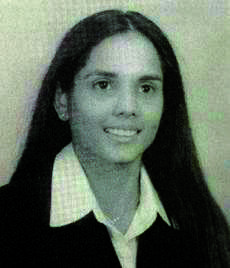
Annie Doohkan, the chemist who mishandled thousands of drug samples at a state lab, is charged with obstruction of justice and for lying under oath about holding a master’s degree in chemistry from UMass. Last week it was confirmed that Dookhan got her bachelor’s degree in biochemistry from UMass Boston. How does this affect our campus, our students, and UMass Boston’s reputation?
We bring you two perspectives.
(1) Let’s Stop Pretending
By Shira Kaminsky
For the next few months, every résumé that carries UMass Boston’s name will also carry a little reminder about Annie Dookhan. The scandal, and Dookhan’s connection to this institution, shouldn’t cast a shadow on the academic integrity of the biochemistry program, or any other department, but let’s not kid ourselves: Every employee at every lab in the state is probably following the Dookhan story right now, and this includes hiring managers.
No one said it’s fair. Someone like Dookhan could have come out of any university. Her actions, which some attribute to a mental breakdown, can’t possibly reflect on the quality of teaching or the ethical standards at UMass Boston. She lied about getting a master’s degree here, and she graduated over a decade ago. Still, the connection exists, and it’s not a good one.
The university naturally seeks to distance itself from this scandal. When I went looking for people who might have known Dookhan while she was here, I got several unsolicited tips on how to “spin” this story. “This isn’t about Annie Dookhan,” one faculty member told me. “It should be about the thousands of innocent people who were put behind bars. It should be about the children who grew up without a parent because of her lies.” Sure, there are other interesting, horrifying, compelling aspects to the story, but what should the UMass Boston community care about?
Later that day I ran into a friend who graduated last spring with a biology degree. He’s applying for jobs at cancer research labs in the Boston area. “Did you know that the scientist from the scandal went to UMass Boston?” I asked. His immediate, gut reaction: “Oh no!”
Efforts to spin this away ring hollow when at every graduation ceremony we’re urged to be “ambassadors of UMass Boston,” and “represent.” What we do when we leave this campus, we’re told, reflects back on the institution. Well, Dookhan reflected poorly, and it is either naïve or dishonest to disregard the consequences.
UMass Boston graduates looking for a job in a lab will not go hungry over this. Most hiring managers won’t rule out candidates from UMass Boston just because of Annie Dookhan. But in a competitive job market, graduating from the same institution as Dookhan doesn’t help.
(2) Already Yesterday’s News
By Paul Driskill
Annie Dookhan falsified evidence for as many as 34,000 court cases during her time as a chemist in a Department of Public Health laboratory. Where she graduated from should not and ultimately will not factor into anyone’s opinion of Dookhan, nor will Dookhan’s actions negatively affect the image of UMass Boston.
While Dookhan may have falsified evidence, any sensible individual following this story will realize that it is not her graduation from UMass Boston that compelled her to take these actions, but rather her own decision-making.
Regardless of whether or not someone is sensible, the news cycle is taking its natural course. When a news story of this sort breaks, readers are focused on the history of the individual in order to get bearings on what happened. Having this information, the reader is interested in the story as it unfolds. The interest is not where Dookhan graduated from, but how is her trial proceeding, what did investigators uncover today, and other similar questions.
This shift of interest can be easily seen in the news. On Sept. 25, the Boston Herald published an article entitled: “Drug lab chemist testified she had masters; UMass says not so.” Unlike this article, which is (as its title suggests) predominantly about Dookhan’s falsified credentials, more up-to-date articles are drifting further and further from the old news of Dookhan’s past. For example, a Boston Globe article Sept. 30 entitled “How a chemist circumnavigated her lab’s safeguard”, makes no mention of UMass Boston but, rather, informs the reader of new evidence.
Although the news cycle is drifting away from Dookhan’s degree, the information is already in the mind of the reader. How people use that information is entirely based on the individual’s ability to separate the individual from the institution.
As UMass Boston students we must also be aware of our own filters: We are likely hyper-aware of and perhaps worried that this woman is associated with our university. If Annie Dookhan graduated from the University of Michigan, would we be paying as much attention to her case as we are now? On the global stage, how important is it that she graduated from here?
Ultimately, I think the name “Annie Dookhan” will do little to besmirch the reputation of UMass Boston. Rather, people will remember the case, not where she graduated from.




















































